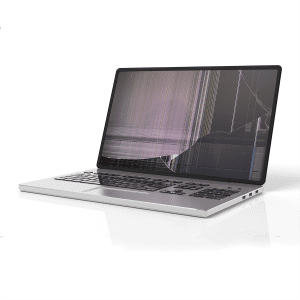Data Recovery Myths Debunked: Separating Fact from Fiction
In the digital age, data is not just a collection of bytes; it’s the lifeblood of our personal and professional lives. We store everything from cherished family photos to critical business documents on hard drives. Thus, the loss of data can be a harrowing experience, often leading to a state of desperation. In these moments of urgency and distress, individuals are most vulnerable to falling prey to the myriad of myths and misconceptions surrounding data recovery.
When faced with losing crucial data, the immediate reaction is panic. This desperation can lead individuals to grasp any solution that promises a quick fix, regardless of its validity. Unfortunately, this urgency can lead to decisions that exacerbate the problem. Let’s address and debunk these myths based on our years of experience in the data recovery industry.
Debunking Myth 1: The Freezer Trick
In the throes of data loss panic, the ‘freezer trick’ – freezing a failed hard drive with the hopes of reviving it – might seem like a miraculous solution. However, this method is more likely to harm than help. Freezing can cause condensation inside the drive, leading to irreversible damage.
This so-called trick can damage the data on your hard drive to the point beyond repair and thus should never be used, regardless of what the so-called experts on YouTube may have you believe.
Debunking Myth 2: Circuit Board Swapping
Swapping a damaged hard drive’s circuit board with a functional one might appear as a straightforward fix. However, this is a complex process requiring specific compatibility and expertise.
Incorrectly replacing a circuit board can lead to permanent data loss, emphasizing the need for professional intervention. It is also worth mentioning that finding the exact same circuit board for your hard drive is easier said than done.
Debunking Myth 3: DIY Repairs on Physically Damaged Hard Drives
The urge to personally fix a physically damaged hard drive is understandable but fraught with risks. Hard drives are intricate devices; improper handling can lead to permanent data loss. Professional hard drive data recovery services, with their specialized tools and clean room environments, are crucial for successful data recovery.
Debunking Myth 4: Standard Clean Rooms for Data Recovery
A ‘clean’ room is not equipped for data recovery in a typical home or office setting. Professional data recovery requires a specialized clean room lab to minimize dust and contaminants. Ordinary clean rooms lack the necessary filtration systems, which means that there is the risk of contamination and damage beyond repair to the hard drive.
Debunking Myth 5: Permanent Loss of Deleted Data
The belief that deleted data is permanently lost is a common misconception. In many cases, deleted data remains recoverable until overwritten. Prompt action with the right tools can lead to successful recovery, but the window of opportunity diminishes as time passes.
Debunking Myth 6: Uniformity of Data Recovery Software
Not all data recovery software is created equal. Different tools are designed for specific data loss scenarios. Choosing the right software is crucial, and in complex cases, the expertise of professional services is invaluable.
Debunking Myth 7: Invariably High Cost of Data Recovery
The perception that data recovery is invariably expensive is a nuanced issue that deserves a closer look. It’s a common fear that seeking professional help for data recovery will lead to exorbitant costs, but this is not always the case. The cost of data recovery is highly variable and depends mainly on the nature and severity of the data loss. For instance, simpler cases like accidental deletion or basic software issues can often be resolved with less expensive software solutions. On the other hand, complex scenarios involving physical damage or severe corruption may require more sophisticated and costly recovery methods.
Moreover, the pricing structures of data recovery services vary. Many firms offer different service tiers, from standard to emergency recovery, with the situation’s urgency often influencing the price. It’s also important to consider the value of the lost data against the cost of recovery. In the case of businesses, the loss of critical data can have significant financial implications, making investing in recovery a reasonable decision.
Most reputable data recovery services begin with a free initial consultation and evaluation. This step is crucial as it provides an understanding of the potential cost and feasibility of the recovery effort before any commitment is made.
Debunking Myth 8: Guaranteed Success in Data Recovery
The belief in a guaranteed success rate in data recovery is an overestimation that needs to account for the complexities involved in the process. While advancements in technology have significantly improved the capabilities of data recovery, several factors can still impact the outcome. Physical or logical damage to the storage medium is a major determinant; severely damaged drives, especially those with platter damage or overwritten data, pose a substantial challenge to successful recovery.
The time elapsed since the data loss is also a critical factor. The longer the delay in initiating recovery efforts, the greater the risk of the data being overwritten or further damaged. Additionally, the actions taken immediately after data loss can significantly influence the recovery process. Continued use of a failing drive or improper recovery attempts can drastically reduce the chances of successful data recovery.
Despite the remarkable progress in recovery techniques, certain scenarios remain beyond the reach of current technology. This is particularly true in cases where data has been securely overwritten, or the storage device has suffered extensive damage. Furthermore, the expertise and experience of the data recovery professionals play a significant role. Skilled technicians equipped with state-of-the-art tools can maximize the chances of successful recovery, but even then, there are no guarantees.
Conclusion
In the face of data loss, it’s crucial to approach the situation calmly and avoid falling for myths that promise quick fixes. Understanding the realities of data recovery and relying on professional expertise and technology is the most effective way to navigate these challenging situations. Regular backups remain the most reliable defence against data loss, but when data loss does occur, informed decisions and professional assistance are your best allies.
By addressing these myths, we aim to alleviate the desperation associated with data loss, providing clarity and guiding you toward successful data recovery solutions.








